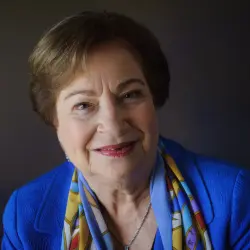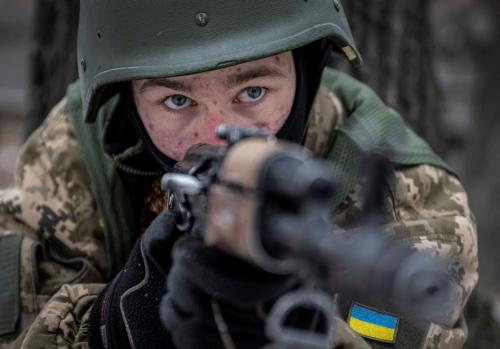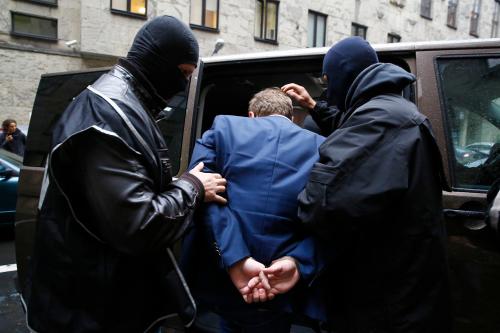There is no doubt that the Kremlin is responsible for the death of Alexei Navalny. He died a slow death, beginning with his poisoning with the deadly nerve agent Novichok by the Russian Federal Security Service in 2020. He only survived then because he was able to receive treatment at Berlin’s Charité hospital. Since his return from Germany early in 2021, he was arrested, jailed in increasingly harsh conditions, and more recently transferred to a remote, brutal prison colony above the Arctic Circle, where he was regularly placed in solitary confinement for long periods against Russia’s own laws. Navalny’s health was increasingly frail and his requests for proper medical treatment were repeatedly denied. He was able to communicate with the outside world through his lawyers and remained defiant until the end. Russia has lost its most courageous opposition figure.
Some question why Navalny returned to Russia from Germany in 2021, when he knew he would be arrested. He believed that it was his mission to continue fighting the corrupt, repressive Russian system under President Vladimir Putin, and he acknowledged in a video posted before his arrest that he might not survive prison.
Navalny is best known for his anti-corruption activism and the riveting YouTube videos he produced exposing corrupt officials. The most famous was released in January 2021, featuring “Putin’s Palace,” a $1.35 billion estate on the Black Sea with an underground hockey rink, a private casino, and an amphitheater. It garnered 122 million views. Navalny began focusing on corruption early in his business career when he became an activist shareholder and harangued corporate officials at shareholder meetings about the sources and disposition of their earnings. His Anti-Corruption Foundation, although banned in Russia, continues to operate in exile.
Navalny created a successful political organization with branches all over Russia. He advocated “smart voting”—those who oppose Putin should vote for candidates who might be able to defeat the United Russia candidate, be they communists or from the far-right Liberal Democratic Party. His death amid increasingly repressive moves from the Kremlin means that there is no opposition leader left in Russia.
Putin is running for re-election in mid-March and the Kremlin has eliminated any opposition figures from the ballot, the most prominent of whom is Boris Nadezhdin, who opposes the war with Ukraine and garnered more than the requisite 100,000 signatures to be on the ballot. The Kremlin will ensure that there are no protests following Navalny’s death and has already denied that it had anything to do with his demise. Putin’s goal is to eliminate all opposition to his rule. It is likely that repression will increase after his re-election. We are now entering an era that resembles the Stalin years more than anything that followed that dictator’s death.
The Brookings Institution is committed to quality, independence, and impact.
We are supported by a diverse array of funders. In line with our values and policies, each Brookings publication represents the sole views of its author(s).







Commentary
The death of Alexei Navalny
Russia just lost its most courageous opposition figure
February 16, 2024